What Kind of Eggs Are You Really Buying?
Once upon a time, eating eggs was simple. A person simply grabbed eggs from the hen house and cooked them. Today, most people run to the grocery store to buy eggs – and are faced with a myriad of confusing choices. Should you buy organic eggs or free range eggs?
Cage-free eggs or vegetarian eggs?
A Complete Guide to Egg Labels
Knowing what these and other labels really mean can save you money – and make the difference between great nutrition and not-so-great nutrition. Here’s the scoop.

Brown vs. White
Assuming the hens who laid the eggs are healthy and have essentially the same diet, there is no difference in taste or nutrition between white- and brown-shelled eggs.
Egg color is determined by the color of the hen’s ear lobes (not her feathers, as some claim). Hens with red ear lobes lay brown eggs; those with white ear lobes lay white eggs.
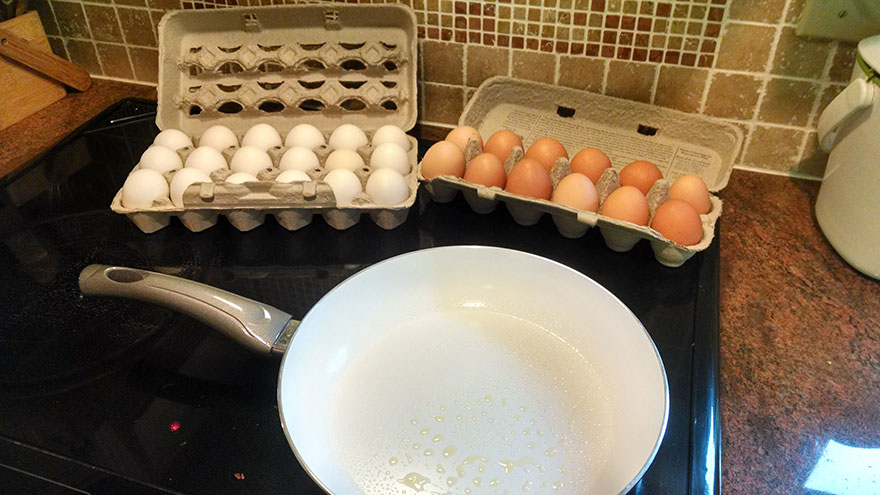
Organic
Eggs marked USDA Organic come from hens who do not receive vaccines, hormones, or antibiotics; in addition, their feed must come from land that’s been free from chemicals for at least three years. GMO grains are not allowed.
However, the problem with this label is that hens given a natural diet of bugs can’t be USDA certified organic – because the government doesn’t know where those bugs came from or what they’ve been eating. Therefore, organic eggs come from hens who are only given chicken feed – which, as we’ll soon see, means the eggs aren’t as healthy as they could be.
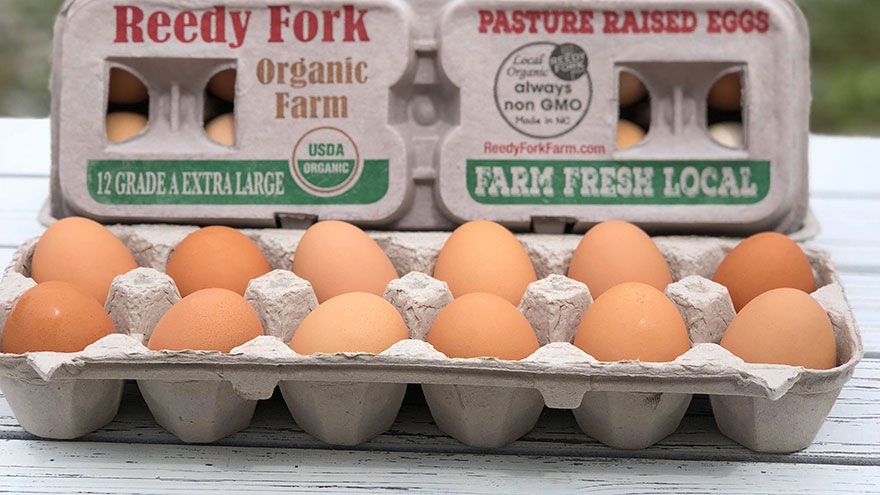
Free Range
Eggs marked “free-range” come from hens who have the opportunity to go outside and scratch around, as they naturally would. However, a farmer only needs to give the hens a tiny door and a minuscule “outside” area to qualify for this label. Most grocery-store sold eggs marked “free-range” come from hens who live crowded indoor lives and have no real opportunity to scratch around.
Truly free range eggs come from hens who are allowed plenty of outside room to scratch, eating bugs and weeds; such eggs have higher nutritional value (2/3 more vitamin A, 2 times more omega-3s, 3 times more vitamin E, and 7 times more beta carotene) and less cholesterol (about 1/3). Typically, you’ll only find this type of true free range egg locally, from small farmers or backyard hen owners.

Cage-Free
Most commercially-raised hens are raised in small wire cages that don’t allow them to spread their wings or move much.
Commercial eggs from “cage-free” hens come from chickens who typically live in an open barn, without individual cages. These barns are usually crowded, however.
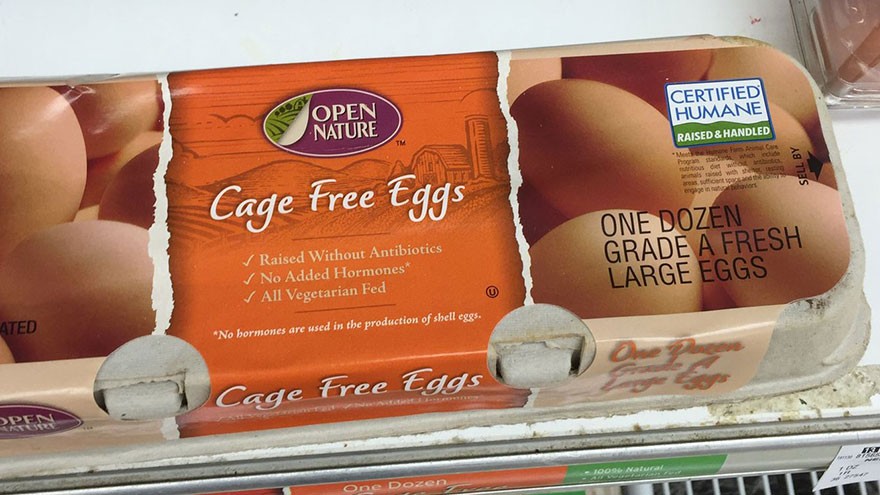
Natural
This label is pretty meaningless, because all chicken eggs are natural. This label has nothing to do with chickens receiving a natural diet, either.
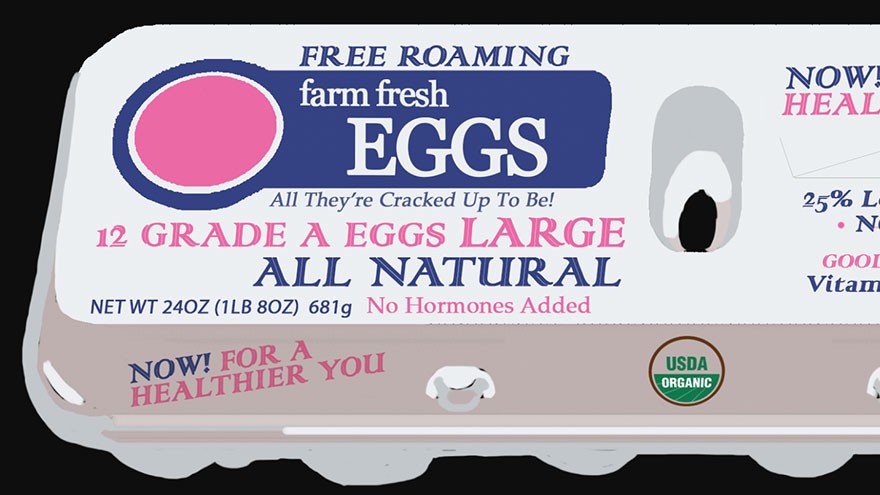
Vegetarian
Vegetarian eggs are laid by hens who are given a vegetarian diet. However, this is not a hen’s natural diet. Chickens are naturally omnivores – they eat both plants and meat.
Although I can find no studies about the nutritional value of eggs laid by vegetarian hens, it makes sense that depriving hens of their natural diet is detrimental to both the chicken’s health and the quality of the eggs produced by that hen.
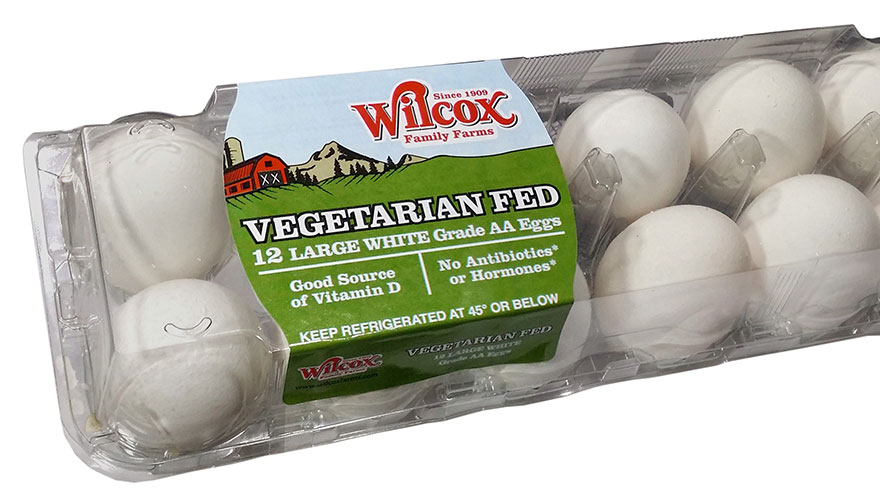
Pasteurized
Some eggs are marked “pasteurized,” which means they are heated to 140 degrees F. for 3 ½ minutes. This kills harmful bacteria, but also reduces the nutritional value of eggs.
Nonetheless, some experts suggest children and the elderly – both at the highest risk for dying from salmonella poisoning – eat pasteurized eggs.

Certified Humane
Eggs marked Certified Humane come from birds that live cage free, usually inside barns that are not as crowded as is typically found in “cage free” barns; however, chickens don’t naturally live in huge flocks. They find this stressful and will peck each other; therefore, removing the hens’ beaks is still permitted.
Certified Humane hens are allowed to nest, perch, and dust bathe – all things a hen does naturally, given a friendly environment.
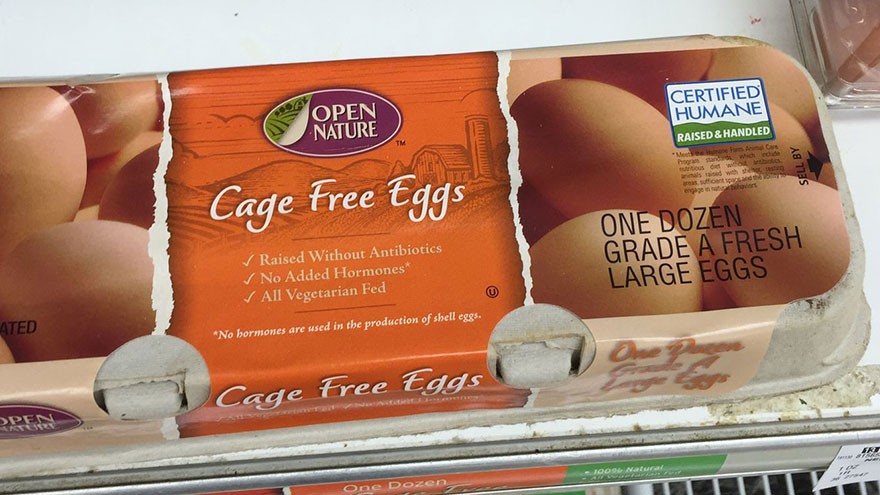
Check out the video version of this article on YouTube.

